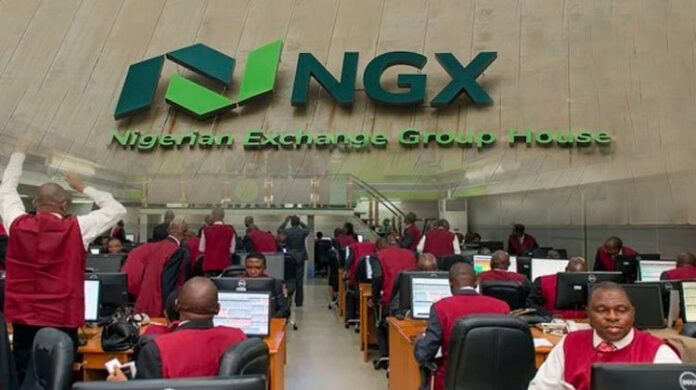Nigeria’s stock market stumbled last week, reacting negatively to the Central Bank of Nigeria’s (CBN) decision to raise interest rates.
The CBN’s Monetary Policy Committee (MPC) increased the Monetary Policy Rate (MPR) by 25 basis points, moving it from 27.25% to 27.5%.
This marks the sixth consecutive rate hike this year.
In total, the MPR has climbed by a staggering 875 basis points in 2024, compared to a 225-basis-point increase in 2023.
The Nigerian Exchange Limited (NGX) felt the impact immediately.
The NGX All-Share Index (ASI), which tracks market performance, dropped by 0.3% week-over-week (W/W).
It closed at 97,507.87 points, down from 97,829.02 points the previous week.
Analysts say the interest rate hike fueled investor concerns and triggered sell-offs in key stocks.
Seplat, one of the major players in the oil sector, recorded a significant 6.0% decline.
GTCO fell by 3.0%, while MTN Nigeria lost 1.2% of its value.
Despite the overall decline, a few stocks bucked the trend.
WAPCO gained 7.4%, Oando rose by 6.7%, and FBN Holdings increased by 3.5%.
However, these gains were not enough to offset the broader market losses.
Market activity, however, remained robust.
Trading volume surged by 63.6% W/W, while trading value increased by 52.8% W/W.
Sectoral performance was mixed, reflecting investor uncertainty.
The Insurance Index rose by 1.2%, and the Industrial Goods Index gained 0.8%.
On the downside, the Oil & Gas Index dropped by 1.9%, the Consumer Goods Index fell by 0.4%, and the Banking Index declined by 0.3%.
Market experts believe the interest rate hike played a critical role in the uneven performance.
Higher interest rates often discourage stock investments, as investors seek safer returns in fixed-income instruments.
Speaking on the market’s reaction, financial analyst Sola Adeyemi noted, “Rising interest rates make borrowing more expensive and reduce liquidity in the market. This puts pressure on stocks.”
Month-over-month (M/M) analysis painted a similarly bleak picture.
Investors lost N64 billion in market capitalization during November.
The market’s total value fell from N59.271 trillion at the end of October to N59.207 trillion by the close of trading last Friday.
According to market watchers, this decline highlights the broader challenges facing Nigeria’s economy.
Investor confidence remains shaky amid concerns over inflation and currency instability.
The CBN’s aggressive rate hikes aim to tame inflation, which has been stubbornly high in recent months.
However, the move has also raised fears of slowing economic growth.
Many businesses are struggling with rising borrowing costs, affecting their bottom lines.
Despite the challenges, some sectors showed resilience.
The insurance sector, in particular, recorded gains, driven by increased investor interest.
Industrial goods also posted positive returns, suggesting some optimism about Nigeria’s manufacturing prospects.
Oil and gas stocks, however, took a hit.
Global oil prices have been volatile, adding to the uncertainty.
Seplat’s 6.0% drop underscores the pressure facing energy companies.
For the banking sector, the outlook remains mixed.
While higher interest rates can boost bank earnings through increased loan rates, they also dampen loan demand.
Financial analyst Ifeoma Okeke commented, “Banks are navigating a tricky environment. They benefit from higher rates but face challenges in maintaining loan growth.”
Looking ahead, market participants are cautiously optimistic.
Some believe that if inflation begins to ease, the CBN may slow its rate hikes.
Others are less hopeful, pointing to ongoing economic headwinds.

